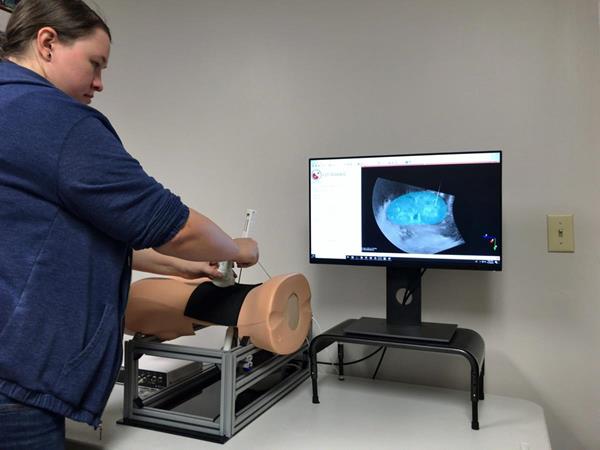open source software development
See the following -
A Guide To Productivity Management In Open Source Projects
 Open source is one of the most important technology trends of our time. It’s the lifeblood of the digital economy and the preeminent way that software-based innovation happens today. In fact, it’s estimated that over 90% of software released today contains open source libraries. There's no doubt the open source model is effective and impactful. But is there still room for improvement? When comparing the broader software industry’s processes to that of open source communities, one big gap stands out: productivity management. By and large, open source project leads and maintainers have been slow to adopt modern productivity and project management practices and tools commonly embraced by startups and enterprises to drive the efficiency and predictability of software development processes. It’s time we examine how the application of these approaches and capabilities can improve the management of open source projects for the better.
Open source is one of the most important technology trends of our time. It’s the lifeblood of the digital economy and the preeminent way that software-based innovation happens today. In fact, it’s estimated that over 90% of software released today contains open source libraries. There's no doubt the open source model is effective and impactful. But is there still room for improvement? When comparing the broader software industry’s processes to that of open source communities, one big gap stands out: productivity management. By and large, open source project leads and maintainers have been slow to adopt modern productivity and project management practices and tools commonly embraced by startups and enterprises to drive the efficiency and predictability of software development processes. It’s time we examine how the application of these approaches and capabilities can improve the management of open source projects for the better.
- Login to post comments
Can Open Science Help Patients And Save Pharma?
Open science research and development hybrid development model can protect pharma company profits while reducing costs of medicines for consumers Read More »
- Login to post comments
Getting Started With Pimcore: An Open Source Alternative For Product Information Management
 Product information management (PIM) software enables sellers to consolidate product data into a centralized repository that acts as a single source of truth, minimizing errors and redundancies in product data. This, in turn, makes it easier to share high-quality, clear, and accurate product information across customer touchpoints, paving the way for rich, consistent, readily accessible content that's optimized for all the channels customers use, including websites, social platforms, marketplaces, apps, IoT devices, conversational interfaces, and even print catalogs and physical stores...For years, there have been proprietary products that address some of these needs, like Salsify for data management, Adobe Experience Manager, and SAP Commerce Cloud for experience management, but now there's an open source alternative called Pimcore. Read More »
Product information management (PIM) software enables sellers to consolidate product data into a centralized repository that acts as a single source of truth, minimizing errors and redundancies in product data. This, in turn, makes it easier to share high-quality, clear, and accurate product information across customer touchpoints, paving the way for rich, consistent, readily accessible content that's optimized for all the channels customers use, including websites, social platforms, marketplaces, apps, IoT devices, conversational interfaces, and even print catalogs and physical stores...For years, there have been proprietary products that address some of these needs, like Salsify for data management, Adobe Experience Manager, and SAP Commerce Cloud for experience management, but now there's an open source alternative called Pimcore. Read More »
- Login to post comments
HHS CTO Susannah Fox Lays Out Her Communications Priorities
 The public conversation about health and health care can be fast-paced and free-wheeling — words not often associated with the federal government. While we are not in control of the conversation, government workers can still listen and contribute to it. We can seed it with facts and ideas. We can respond to questions. We can be human, even as we maintain a thoughtful and focused public presence. All by leveraging the power of online communications. Parallels in other industries can guide us...
The public conversation about health and health care can be fast-paced and free-wheeling — words not often associated with the federal government. While we are not in control of the conversation, government workers can still listen and contribute to it. We can seed it with facts and ideas. We can respond to questions. We can be human, even as we maintain a thoughtful and focused public presence. All by leveraging the power of online communications. Parallels in other industries can guide us...
- Login to post comments
How Radical Transparency Is Transforming Open Source Healthcare Software
 At Tidepool, where I work as a Community and Clinic Success Manager, the company's mission is to make diabetes software more accessible, meaningful, and actionable. Operating in the open is how we achieve that. Tidepool's diabetes management software is an open source platform free for both clinicians and people impacted by diabetes. And, because the company is a nonprofit, it also operates according to the transparency rules that govern 501(c)(3) organizations.
At Tidepool, where I work as a Community and Clinic Success Manager, the company's mission is to make diabetes software more accessible, meaningful, and actionable. Operating in the open is how we achieve that. Tidepool's diabetes management software is an open source platform free for both clinicians and people impacted by diabetes. And, because the company is a nonprofit, it also operates according to the transparency rules that govern 501(c)(3) organizations.
- Login to post comments
How Upstream Contributions Power Scientific Research
 Just as with software development, research under Horizon Europe promotes the adoption of sharing research outputs as early and widely as possible to citizen science, developing new indicators for evaluation research, and rewarding researchers. Horizon Europe emphasizes open science and open source technology. The program evolved from Horizon 2020, which provided financial support for research projects that promoted industrial competitiveness, advanced scientific excellence, or solved social challenges through the process of "open science." Open science is an approach to the scientific process based on open cooperative work, tools, and diffusing knowledge found in the Horizon Europe Regulation and Model Grant Agreement. This open science approach aligns with open source principles that provide a structure for such cooperation.
Just as with software development, research under Horizon Europe promotes the adoption of sharing research outputs as early and widely as possible to citizen science, developing new indicators for evaluation research, and rewarding researchers. Horizon Europe emphasizes open science and open source technology. The program evolved from Horizon 2020, which provided financial support for research projects that promoted industrial competitiveness, advanced scientific excellence, or solved social challenges through the process of "open science." Open science is an approach to the scientific process based on open cooperative work, tools, and diffusing knowledge found in the Horizon Europe Regulation and Model Grant Agreement. This open science approach aligns with open source principles that provide a structure for such cooperation.
- Login to post comments
New Software from Kitware Virtualizes Medical Education and Training
 Kitware added to its collection of open source toolkits with the first release of the interactive Medical Simulation Toolkit (iMSTK). The toolkit offers manufacturers and researchers all the software components they need to build and test virtual simulators for medical training and planning. "iMSTK, which we've been developing in close collaboration with Professor Suvranu De's research center - the Center for Modeling, Simulation and Imaging in Medicine at Rensselaer Polytechnic Institute - is meant to empower developers to rapidly prototype virtual simulator applications," said Andinet Enquobahrie, the director of medical computing at Kitware.
Kitware added to its collection of open source toolkits with the first release of the interactive Medical Simulation Toolkit (iMSTK). The toolkit offers manufacturers and researchers all the software components they need to build and test virtual simulators for medical training and planning. "iMSTK, which we've been developing in close collaboration with Professor Suvranu De's research center - the Center for Modeling, Simulation and Imaging in Medicine at Rensselaer Polytechnic Institute - is meant to empower developers to rapidly prototype virtual simulator applications," said Andinet Enquobahrie, the director of medical computing at Kitware.
- Login to post comments
Open Source Goes Corporate: Can Open Healthcare Be Far Behind?
 If you aren't in IT, you may have missed the news that IBM is acquiring Red Hat, a leader in the open source Linux movement, or that, a couple days prior, Microsoft closed on its acquisition of GitHub, a leader in open source software development. Earlier this year Salesforce acquired Mulesoft, and Cloudera and Hortonworks merged; all were other open source leaders. I must confess, I had never heard of some of these companies, but I'm starting to believe what MarketWatch said following the IBM announcement: "open source has truly arrived." What exactly that means, especially for healthcare, I'm not sure, but it's worth exploring. IBM is paying $34b for Red Hat.
If you aren't in IT, you may have missed the news that IBM is acquiring Red Hat, a leader in the open source Linux movement, or that, a couple days prior, Microsoft closed on its acquisition of GitHub, a leader in open source software development. Earlier this year Salesforce acquired Mulesoft, and Cloudera and Hortonworks merged; all were other open source leaders. I must confess, I had never heard of some of these companies, but I'm starting to believe what MarketWatch said following the IBM announcement: "open source has truly arrived." What exactly that means, especially for healthcare, I'm not sure, but it's worth exploring. IBM is paying $34b for Red Hat.
- Login to post comments
Open-Source Everything: The Moral of the Healthcare.gov Debacle
The U.S. federal government, led by the executive branch, should make all taxpayer-funded software development open-sourced by default. In the short run, this would help to prevent the recurrence of problems like those that plague healthcare.gov. Longer term, it will lead to better, more secure software and could allow the government to deliver a range of services more effectively. And it would enrich democracy to boot. Read More »
- Login to post comments
Stop laying the blame for Heartbleed on open source
Security experts acknowledge that open source is the best model for crypto, so how do we drive improvements to the model for creating security-critical infrastructure? Read More »
- Login to post comments